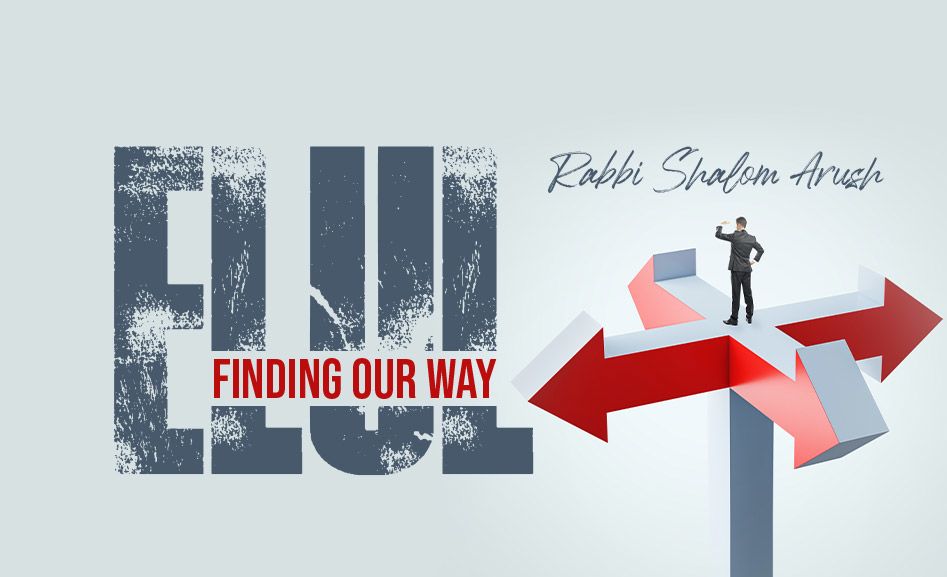
Junk Now, Pay Later
Teshuva means taking proper care of the soul and keeping it in good health. Why does it deserve any less than the body? Why feed it junk now, only to pay later?

My perfect pick-me-up in the morning is coffee with milk, a little cinnamon, and a drop of honey.
Why don’t I put sugar or sweeteners into my cup of Joe like the rest of mankind?
It’s because my friend was just diagnosed with diabetes. He is 34 years old. His eating habits were never that different from mine and now he has a condition that will force him into involuntary diets and medicine for the  rest of his life. This is irreversible. He has to contend with an illness for the rest of his physical existence.
rest of his life. This is irreversible. He has to contend with an illness for the rest of his physical existence.
It has scared me into considering the long term consequences of my immediate actions.
All of us have enough day to day challenges to face at this very moment. It’s very hard to compound our daily tasks with planning ahead to fend off challenges we may not encounter until the distant future. The most convenient thing to do is to assume that if there is no direct damage to doing something it’s okay. If you don’t feel it, don’t fret it.
We seldom make changes to our lives until a situation forces us to. Many of us eat all the junk food and sweets we want until something forces us to change. The lucky ones among us get bad backs from having to carry around an extra thirty pounds of flesh. We get high blood pressure and constant warnings from our physicians. We still have the chance to fix things. We can lose the weight, change our diets, get off blood pressure medication, and put the back brace in storage.
Some of us are not so lucky.
We are forced to make changes because we are diagnosed with diseases that can be treated, but not cured. Our changes are not out of a desire to keep the worst at bay. They are a matter of survival.
We don’t take this into account when we are healthy. I didn’t replace my daily packet of sweet and low because I wanted to. I did it because I am really frightened about what may become of me.
We learn that from every physical phenomenon there is a spiritual parallel.
What does this mean?
For all of the sins we perform, we have to pay for them in one way or another. Mitzvot do not nullify transgressions. If we perform, G-d Willing, a million mitzvot this year and commit fifty sins, Hashem doesn’t deduct the fifty against the million. The punishment, or payment, for a sin is finite. The reward for a mitzvah is infinite. Hashem loves us. He doesn’t want us to waste any of the goodness we have coming for the good things we do on earth. Why should we pay for a $50 crime with a $1,000 bill?
So He “cleanses” us of all of our sins in a limited amount of time so we can enjoy the full benefit of our mitzvot forever!
Our job on earth is to nullify these sins before we have to account for them. We can do this within our lifetime. We can make repentance for our sins and wipe away the blemish from our souls.
Preventing difficult conditions for us in the future doesn’t happen unless we act now. We can immediately monitor the images we decide to see, the people we decide to talk to, and what we decide to hear on any given day. Our decisions today will determine how high the pile of work will be on our spiritual desk once we are fully motivated to clean out our lives, twenty, thirty, or even forty years into the future.
According to the Rambam, someone who has done repentance has already experienced the carnal pleasures of the sin. Hashem created the world with the opportunity for all of us to make great effort to resist sin and to serve Him. A part of this opportunity is that the forbidden must feel really good, especially when it comes to the biggest challenges of all – the tests of personal holiness.
According to the Shulchan Aruch, the worst sin is the sin of spilling seed. We can infer from this that the biggest temptation in this world is the temptation of lust.
The more we misuse our eyes, the more weapons we are handing over to the Evil Inclination. We don’t feel the true consequences of this until we begin to make teshuvah. Eventually we will accept upon ourselves the challenge of resisting the urge to see, talk about, or even think about all forms of indecency. The more we engage in it when we are not holding the mitzvah of personal holiness, the more we will have to overcome.
Some of us are lucky. They get married early, hold the laws of personal holiness from there, and don’t have as much to combat. Like the guy with high blood pressure, all he has to do is lose the weight. The teshuvah process is difficult, but not too rough.
Some of us have a far more difficult journey ahead. Researchers have discovered that the brainwaves of drug addicts are the same as those who are addicted to internet pornography. If we wait too long, the road ahead is no different than for someone physically dependent on drugs or alcohol. It is a condition that we will have to battle tooth and nail for a long time, much like my friend battling his illness. It’s not impossible. The world is proud to host millions of recovering alcoholics and substance abusers who are currently living productive and healthy lives.
Every day we wake up in the morning is a personal gift from G-d. He is giving us another chance to fix things while we still can with a relative ease. We would be crazy to let such a priceless opportunity slip through our fingers while it remains so easily within our grasp.
Teshuva means taking proper care of the soul and keeping it in good health. Why does it deserve any Less than the body? Why continue feeding it junk now, only to pay later? Think about it. Gmar Chatima Tova!
* * *
Dovber Halevi is the author of the financial book, How to Survive the Coming Decade of Anxiety. He writes for Breslev Israel and The Middle East Magazine. He lives with his wife and two children in Eretz Yisrael.








10/19/2011
Very Nice!
10/19/2011